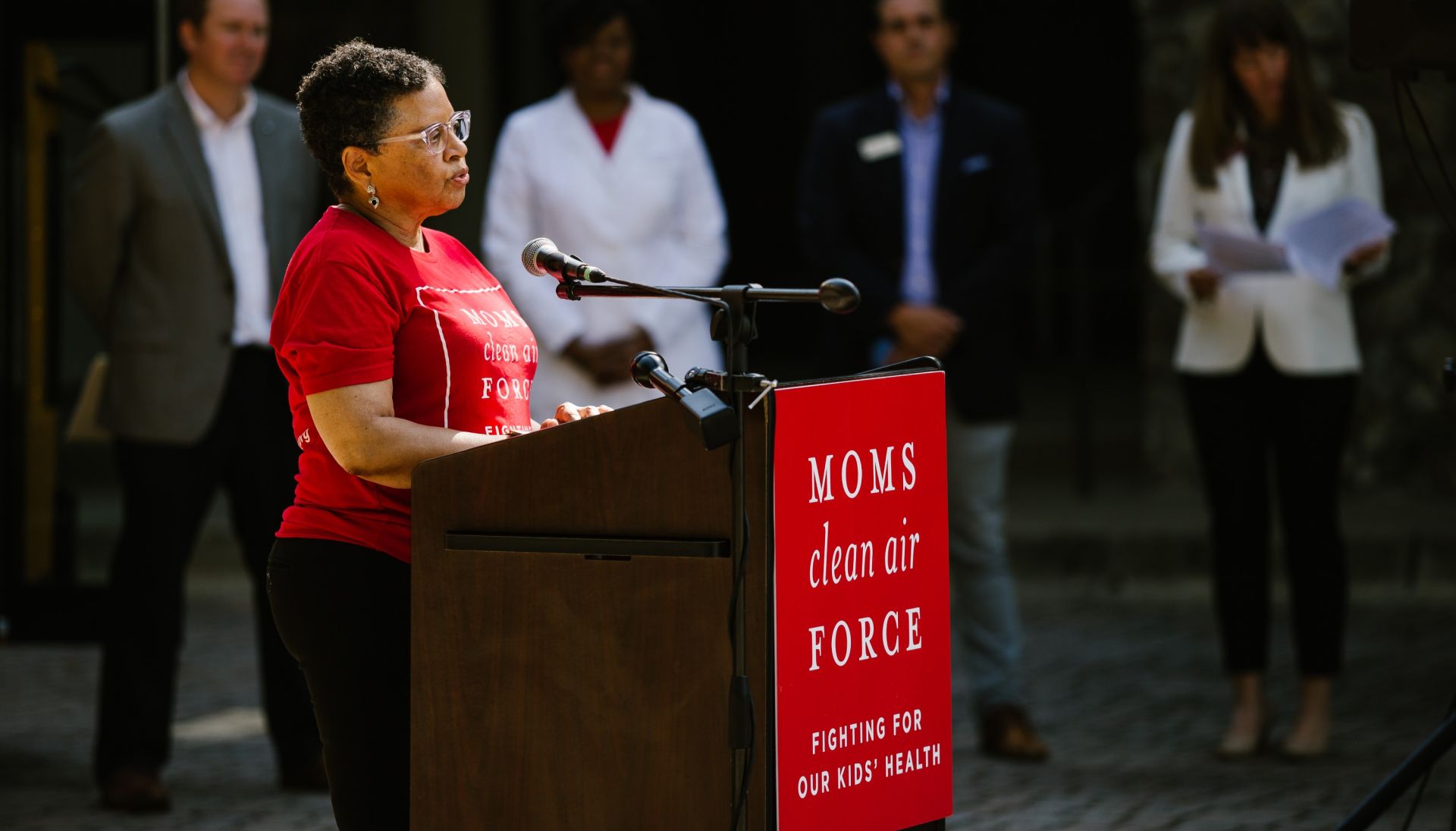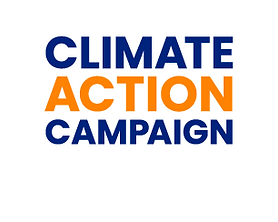

WISCONSIN
Climate Wins Here in Wisconsin
Wisconsinites won big with the unprecedented climate and clean energy investments approved in the historic Inflation Reduction Act and the Infrastructure Investment and Jobs Act. Nearly 8 in 10 Wisconsinites support climate and clean energy investments like those included in these laws because our state is uniquely positioned to seize on the growth opportunities of a transition to a clean energy economy. These new investments will cut climate pollution and accelerate the growth of clean energy – protecting our air, our climate, our health and our communities while creating economic opportunity.
President Biden and climate leaders in Congress delivered in a big way for Wisconsinites by investing in good-paying clean energy jobs, climate-smart agriculture, and clean transportation while also lowering costs for Wisconsin families, protecting our health, and helping to curb the most catastrophic impacts of climate change.

Investing Clean Air and Clean Transportation:
-
In 7 Wisconsin counties, the air quality doesn’t meet national standards. To address that, the Inflation Reduction Act of 2022 invests in low- and zero-pollution transportation, including:
-
$1 billion for clean heavy-duty trucks, school buses, and transit buses, including $400 million reserved just for communities that don’t meet national air quality standards.
-
$3 billion to reduce air pollution at ports.
-
Another $3 billion for environmental justice block grants to reduce air pollution and mitigate climate and health risks.
-
An additional $3 billion for projects that reduce pollution and improve access to safe and affordable transportation.
-
Additionally, over the next five years, the Infrastructure Investment and Jobs Act will:
-
Invest $400 million to improve public transportation across the state to provide healthy, sustainable transportation options and replace thousands of dirty transit vehicles with clean, zero emission vehicles.
-
Invest $78 million to support the expansion of an EV charging network, a critical element to accelerating the adoption of EVs to address the climate crisis and support domestic manufacturing
-
Deliver a portion of a $5 billion nationwide fund for school districts to replace school buses that burn diesel with low- or zero-pollution school buses.
-
-
Since the Infrastructure Investment and Jobs Act was signed into law in November 2021, millions of dollars of investments in transportation and clean air have already been announced in Wisconsin, including:
-
$115 million for public transportation programs to provide healthy, sustainable transportation options and replace thousands of dirty transit vehicles with clean, zero-pollution vehicles.
-
$24 million for the Carbon Reduction Program to fund projects designed to reduce carbon dioxide pollution from on-road highway sources such as electrifying vehicles, constructing bus rapid corridors, and more
-
$12 million funding to expand electric vehicle charging infrastructure.
-

Creating Clean Energy Jobs
-
The Inflation Reduction Act of 2022 will boost clean energy production and manufacturing, creating more jobs in an industry that employs over 71,000 Wisconsinites already.
-
In particular, the Inflation Reduction Act will:
-
Bring an estimated $4 billion of investment in large-scale clean power generation and storage to Wisconsin by 2030.
-
Provide $30 billion in tax credits to accelerate domestic production of solar panel, wind turbines, batteries, and critical minerals processing
-
Provide a new $10 billion investment tax credit to build new manufacturing facilities for clean technologies such as electric vehicles, wind turbines, and solar panels
-
-
These investments will create up to 1.5 million good-paying jobs in 2030, and possibly over 9 million jobs over the next decade, according to experts at the BlueGreen Alliance.
-
A 2020 report found that federal clean energy stimulus investments similar to those considered in the Inflation Reduction Act would add 85,000 clean energy jobs in Wisconsin over five years.
-

Supporting Climate–Smart Agriculture
-
In a win for Wisconsinites, the Inflation Reduction Act of 2022 funds new climate investments in our rural communities, giving farmers more help than ever before to address the climate crisis.
-
The Inflation Reduction Act of 2022 will invest:
-
$20 billion to help farmers implement and expand climate-smart agricultural practices.
-
$3.1 billion to support economically distressed farmers.
-
An additional $2.2 billion to support farmers who have suffered historical discrimination from federal farm loan programs.
-
$14 billion to lower for clean energy in rural communities, including support for rural electric cooperatives transitioning to clean energy and for the domestic production of biofuels.
-

Cutting Pollution to Advance Environmental Justice & Public Health
-
The Inflation Reduction Act of 2022 will:
-
Invest $1.5 billion in urban tree planting programs to combat heat islands in cities like Milwaukee.
-
Provide $281 million for air quality , including in historically overburdened communities exposed to persistent air pollution.
-
-
Over the next five years, the Infrastructure Investment and Jobs Act will:
-
Invest $841 million to improve water infrastructure and ensure that Wisconsinites have access to clean, safe drinking water.
-
Invest $400 million to improve public transportation across the state to provide healthy, sustainable transportation options and replace thousands of dirty transit vehicles with clean, zero-pollution vehicles.
-
Non-white households in Wisconsin are 5.9 times more likely to commute via public transportation.
-
Wisconsinites who take public transportation spend an extra 63% of their time commuting.
-
-
Provide $1 billion in funding for the Great Lakes Restoration Initiative to accelerate efforts to provide safe water for recreating and drinking, to protect and restore native habitats, and more.
-

Lowering Costs for Wisconsin Families
-
The Inflation Reduction Act of 2022 will:
-
Invest $9 billion in consumer home energy rebate programs, focused on low-income consumers, to electrify home appliances and for energy-efficient retrofits
-
Offer 10 years of consumer tax credits to make homes more energy efficient, making heat pumps, rooftop solar, electric HVAC, water heats, and electric appliances more affordable
-
Create a $1 billion grant program to make affordable housing more efficient
-
Independent analyses found the Inflation Reduction Act would lower energy costs for families in Wisconsin with estimates ranging from $300 to $1,800 in annual savings
-
The average household could see between $1,025 in household energy costs including electricity costs, home energy, and transportation by 2030 compared to 2021
-
Additionally, to reduce energy costs for Wisconsin families, the Infrastructure Investment and Jobs Act will:
-
Deliver to Wisconsinites a portion of a $3.5 billion national investment in energy efficiency and weatherization programs to help lower energy bills for families in our state.
-
-
Since the Infrastructure Investment and Jobs Act was signed into law in November 2021, millions of dollars in investments have already been announced in Wisconsin to help lower energy costs for families in our state, including:
-
$95 million for Weatherization Assistance Program to reduce energy costs for low-income households and $5.1 million to help prevent outages and make the power grid more resilient.
-
-
$1.8 million for Low Income Home Energy Assistance Program to help families manage the costs of staying warm in the winter and cool in the summer.

